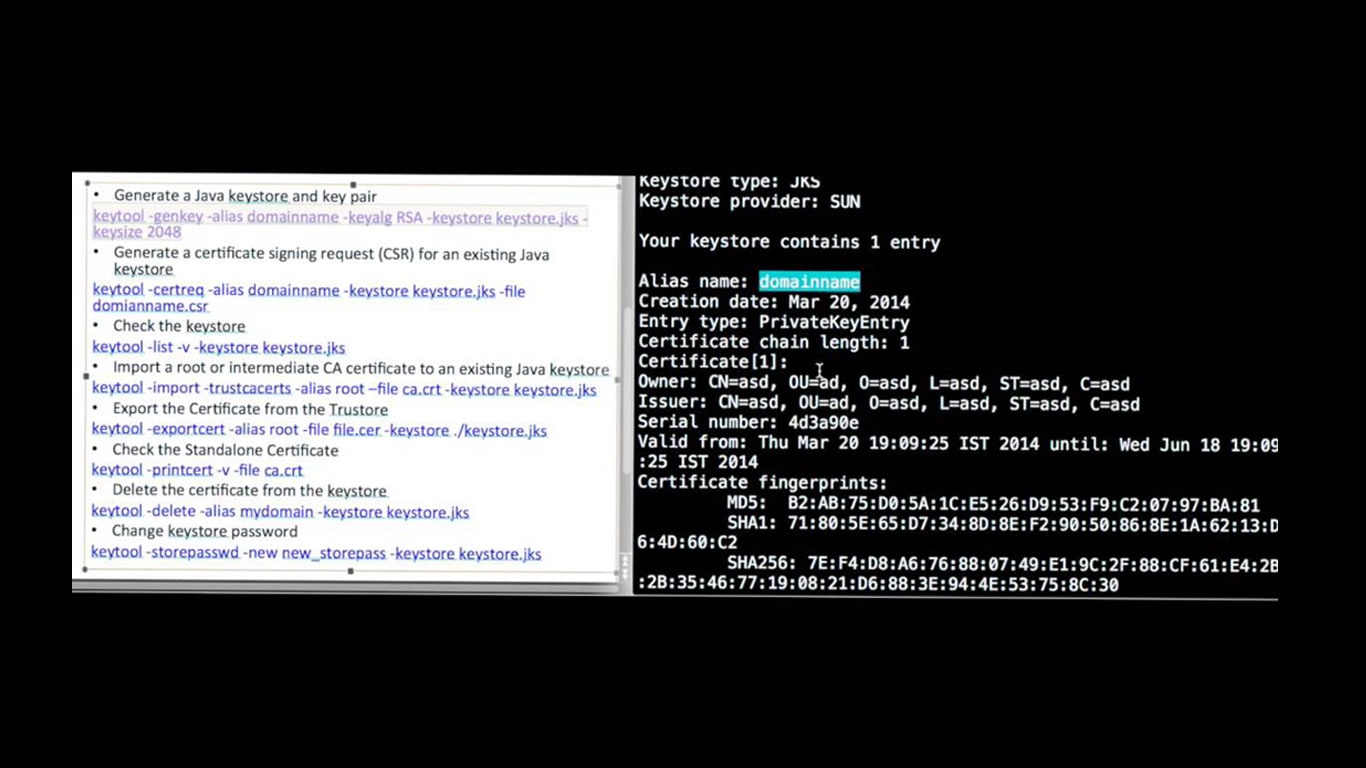
The server's digital certificate should be the first digital certificate in the file, followed by the issuer certificate, and so on. The order of certificates within the file is important. pem format file supports multiple digital certificates (for example, a certificate chain can be included). The preferred keystore format is JKS (Java KeyStore).Ī. The PEM (Privacy Enhanced Mail) format is the preferred format for private keys, digital certificates, and trusted certificate authority (CA) certificates. (The demonstration digital certificate provided by WebLogic Server uses the machine's default host name as the host name.) For more information about using the CertGen utility to obtain private keys and digital certificates, see Using the CertGen Utility. Use the CertGen utility if you want to set an expiration date in the digital certificate or specify a correct host name in the digital certificate so that you can use host name verification. However, these should be used only for demonstration or testing purposes in a development environment, not in a production environment.

The digital certificates and private keys generated by the CertGen utility. You can also use the keytool utility to obtain trust and identity when using WebLogic Server in a production environment.įor more information, see Using the Keytool Utility.
FIND PRIVATE KEY ALIAS KEYSTORE EXPLORER UPDATE
Use the keytool utility to update the self-signed digital certificate with a new digital certificate. Submit the CSR to a CA to obtain a digital certificate for WebLogic Server. Note the following:Īfter you create the private key and self-signed certificate, use keytool to generate a Certificate Signing Request (CSR). The private key and self-signed digital certificate for WebLogic Server that are created by the keytool utility. The demonstration digital certificates, private keys, and trusted CA certificates should be used in a development environment only. The demonstration digital certificates, private keys, and trusted CA certificates in the WL_HOME \server\lib directory and the JAVA_HOME \jre\lib\security directory. WebLogic Server supports private keys, digital certificates, and trusted CA certificates from the following sources: Servers need a private key, a digital certificate containing the matching public key, and a certificate for at least one trusted certificate authority (CA). A server certificate can be invalidated if the host name in the digital certificate of the server does not match the URL specified by the client. For example, a digital certificate can be invalidated because it has expired or the digital certificate of the CA used to sign it expired. Web browsers, servers, and other SSL-enabled applications generally accept as genuine any digital certificate that is signed by a trusted CA and is otherwise valid. The trusted CA certificate establishes trust for a certificate.Īn application participating in an SSL connection is authenticated when the other party evaluates and accepts the application's digital certificate. Well-known certificate authorities include Entrust and Symantec Corporation. The data embedded in a digital certificate is verified by a certificate authority (CA) and digitally signed with the CA's digital certificate. A private key and digital certificate provide identity for the server.

The public key is embedded in a digital certificate with additional information describing the owner of the public key, such as name, street address, and e-mail address. The private key is carefully protected so that only the owner can decrypt messages that were encrypted using the public key. Data encrypted with the public key can only be decrypted using the corresponding private key and data encrypted with the private key can only be decrypted using the corresponding public key. With public key encryption, a public key and a private key are generated for a server. SSL uses public key encryption technology for authentication. Private keys, digital certificates, and trusted certificate authorities establish and verify server identity and trust. Private Keys, Digital Certificates, and Trusted Certificate Authorities


 0 kommentar(er)
0 kommentar(er)
